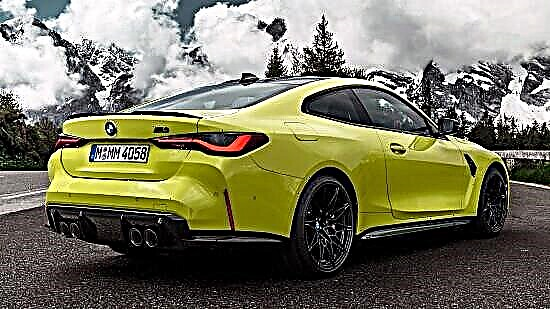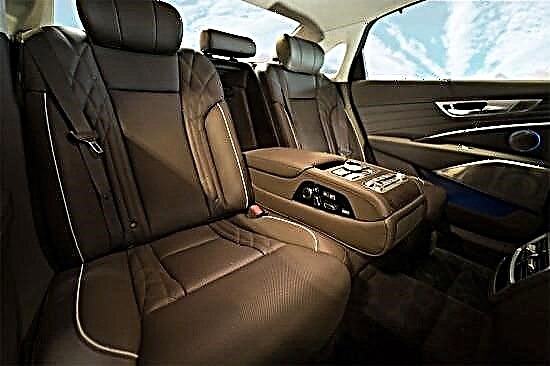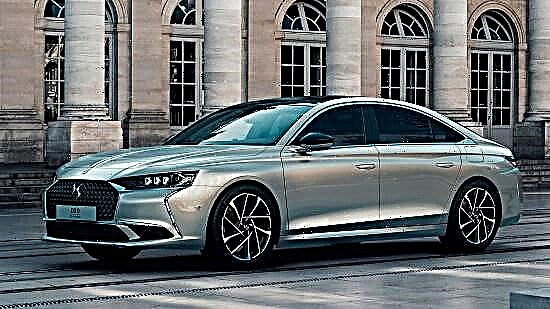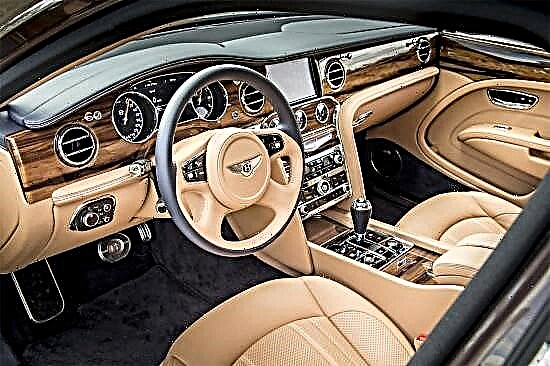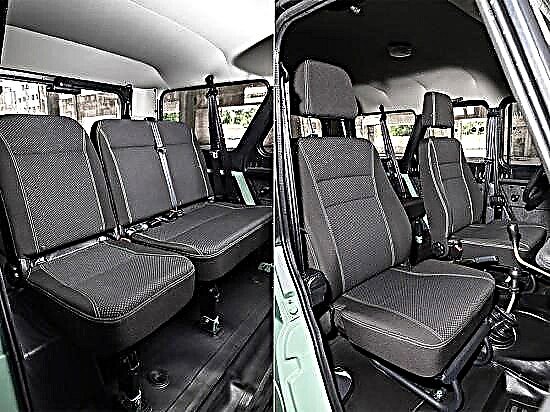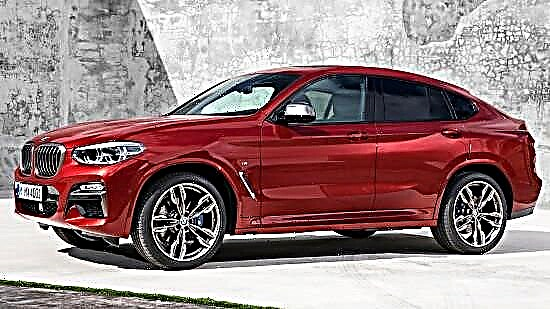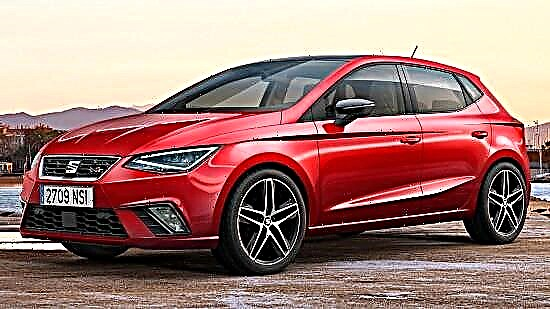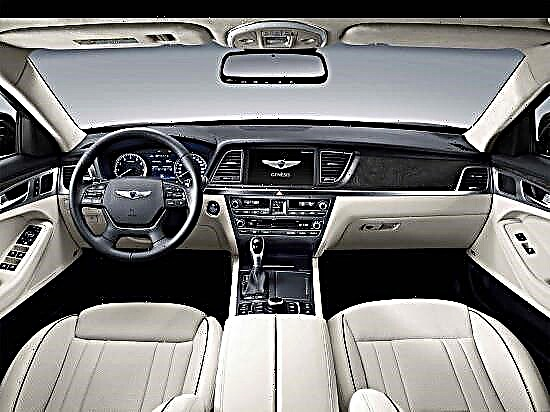In the spring of 2014, sales of a new generation of the Hyundai Genesis business-class sedan started in Russia, the world premiere of which took place last fall. The predecessor of "Genesis" has not achieved great success in our country, but, according to the Koreans, the "updated" sedan is ready to make a second attempt, which will certainly be successful.
Of course, the second-generation three-volume box had much more chances, in comparison with its predecessor - a solid appearance "without kinks", very good equipment and the level of its performance ... in addition, its price at the start of sales did not exceed 3 million rubles (i.e. did not fall under the concept of "luxury" and, accordingly, additional taxation did not threaten him) ... only now "the next round of the crisis" spoiled the "atmosphere". Be that as it may - the "second" actually became more successful than the "first", but back to the review of this car ...

The Koreans started the "transformation" of Hyundai Genesis, of course, with their appearance. The novelty received a more status look, created within the framework of the design concept "Flowing Lines 2.0" and which differs from its predecessor in increased dynamism with the simultaneous presence of an elegant softness of lines, which gives the exterior of the novelty a peculiar zest.

In terms of dimensions, the new Genesis is almost identical to the first generation car, but the Koreans managed to increase the wheelbase by 75 mm. If we talk about the exact dimensions, the body length of the second generation Genesis is 4990 mm, the wheelbase mentioned above is 3010 mm, the width excluding mirrors fits into the frame of 1890 mm, and the height is limited to 1480 mm. The track widths of the front and rear wheels are 1620 and 1633 mm, respectively.
The curb weight of the novelty ranges from 1965 kg to 2055 kg and depends on the equipment level.
In terms of ground clearance, the car was adapted “for Russian conditions”, as a result, the “native ground clearance” of 130 mm remained only for the “Sport” modification, for the rest, the ground clearance height: 155 mm - for the rear-wheel drive version of the sedan, for the all-wheel drive Genesis clearance "lowered" to 150 mm.
In the "second" Hyundai Genesis, the Koreans used a much larger amount of high-strength steels in the production of body panels and elements, bringing their share to 51.5% of the total volume of materials. In addition, laser welding and hot stamping are now more commonly used in the assembly process. All this made it possible to significantly increase the rigidity of the body structure, which became 16% stiffer for torsion and 40% for bending.
It is also worth saying that the new Hyundai Genesis body is much more aerodynamic than its predecessor. The coefficient of its aerodynamic resistance was reduced by Korean engineers to 0.26 Cx, which ultimately contributed to a noticeable decrease in fuel consumption and an increase in the dynamic characteristics of the car.

According to Koreans, the interior of the new Hyundai Genesis is the most spacious in the class. This is especially felt in the back row, where almost the entire height of the wheelbase has been added to the legs. If you add to this the high comfort of the seats, it becomes clear that the new Genesis really seriously expects to compete for a buyer, even with the German giants.
No one should have any complaints about the interior decoration, since the Koreans preferred to use only high-quality materials, including natural leather, wood, aluminum and expensive fabrics.
Some European critics did not like the "horizontal" layout of the front panel (display - climate - multimedia), which was considered too strict in terms of design, but the Koreans explained the choice of such a decision solely by caring for the driver, since the panel represents part of the new concept of intuitive control (HMI), which also includes a multifunction steering wheel, instrument panel, head-up display and center console.

In general, the salon of the second generation of the Hyundai Genesis sedan has excellent ergonomics, boasts excellent build quality and premium equipment, especially in top-end trim levels.
Genesis has a very good trunk, which can hold up to 493 liters of cargo.

On the Russian expanses, Hyundai Genesis of the second generation is offered with two variants of the power plant of the Lambda family:
- As a junior engine, the Koreans offer a V-shaped 6-cylinder gasoline unit with a direct fuel injection system, a variable valve timing system and a 24-valve timing mechanism. The working volume of the younger engine is 3.0 liters (2999 cm³), which makes it possible to develop up to 249 hp. maximum power at 6000 rpm. The peak torque of this power unit falls at around 304 Nm, which is achieved at 5000 rpm.
As a gearbox, the junior motor receives an uncontested 8-band "automatic", with which the starting acceleration from 0 to 100 km / h is 8.6 and 9.0 seconds for front-wheel drive and all-wheel drive versions, respectively. The maximum travel speed in both cases is limited to 230 km / h. In terms of fuel consumption, the front-wheel drive Genesis eats 15.3 liters of AI-95 gasoline within the city, 8.5 liters on the highway and about 11.0 liters in the combined cycle; the all-wheel drive sedan, in turn, consumes 15.6 liters in the city, 9.0 liters on the highway and 11.4 liters in mixed driving mode. - The flagship engine also runs on gasoline, has 6 V-cylinders with a displacement of 3.8 liters (3778 cm³), is equipped with a 24-valve timing system, variable valve timing and direct fuel injection. Its upper power threshold is indicated by the manufacturer at 315 hp at 6000 rpm, and the peak torque is 397 Nm at 5000 rpm.
The flagship engine is aggregated with the same 8-band automatic transmission, which allows the sedan to accelerate from 0 to 100 km / h in 6.8 seconds or reach a speed maximum of 240 km / h. As for fuel consumption, the flagship requires 16.2 liters in urban traffic conditions, no more than 8.9 liters during high-speed driving and about 11.6 liters in the combined cycle.
Hyundai Genesis II received front and rear independent multi-link suspension with telescopic shock absorbers and anti-roll bar. In the top-end configuration, the novelty is equipped with an electronically controlled air suspension, which allows you to achieve maximum comfort when driving on roads with any surface.
In the "base" Hyundai Genesis receives only rear-wheel drive, but if you wish, you can order the installation of an intelligent all-wheel drive system HTRAC AWD from Magna with a choice of four available operating modes: "Eco", "Normal", "Sport" and "Snow" ...
Also note that the flagship motor is equipped with the HTRAC AWD system by default.
The all-wheel drive of the Hyundai Genesis sedan is based on an electronically-controlled multi-plate interaxle clutch capable of transmitting up to 90% of torque to the front or rear axle, depending on road conditions and the selected operating mode.
In Russia, the Hyundai Genesis II was offered in five trim levels: Business, Elegance, Premium, Luxury and Sport. In the lower configuration, the sedan receives 7 airbags, xenon headlights with a washer, rear LED lights, LED running lights, a tire pressure sensor, rain and light sensors, a steering column adjustable for height and reach, front seats with electric adjustment and heating, side mirrors with electric and heated, power windows with two modes of operation, electric rear window curtain, 2-zone climate control, cruise control, circular parking sensors, rear view camera, navigation system, initial audio system with 7 speakers and a subwoofer, as well as 17 -inch alloy wheels.
In more expensive trim levels, the sedan can be equipped with an electromechanical parking brake, heated steering wheel, an electric boot lid, a blind spot monitoring system, seat ventilation, a head-up display, an automatic valet parking, an air ionizer, a premium audio system with 14 or 17 speakers and other equipment that increases comfort in the cabin ...
The cost of Hyundai Genesis in 2014 starts at 1,859,000 rubles. The most affordable version with all-wheel drive will cost 1,959,000 rubles. The Genesis modification with the flagship engine is estimated at a minimum of 2,869,000 rubles, and the top-end configuration will cost 2,979,000 rubles.

